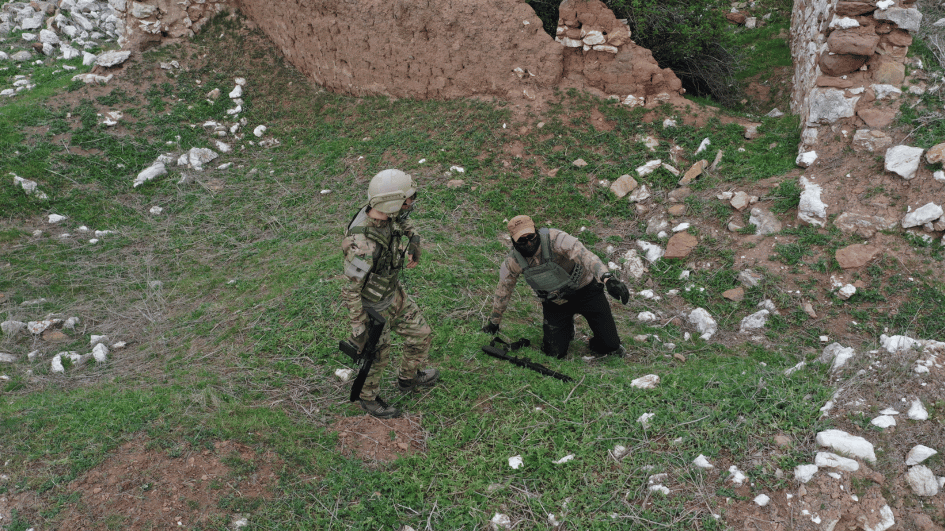Press freedom in Turkey: Which way to go?
MARC PIERINI
Many recent official and civil society reports attest to a deteriorating trend in press freedom in Turkey, while the government’s narrative emphasizes the fact that arrests, imprisonments, and court cases are mostly linked to terrorism not press issues.A visible, multi-dimensional trend
Issues are many. The Kurdish dimension of the press freedom issue manifests itself in the amount of Kurdish journalists charged and imprisoned for their work. The media scene witnesses regular conflicts of interests between business and press freedom. The legal framework, especially the anti-terror and media laws and the criminal code, as well as the administration of justice, are marked by flaws. Furthermore, there is an extensive blocking of websites. Last, the government showed an increased inclination to interfere in journalists’ affairs and a decreasing tolerance for dissent. All this has a “chilling effect” on press freedom, including self-censorship.
Some positive developments, more negative ones
Not all is black. Today, more subjects are debated than ever before, the press sector is dynamic, social media is playing an increasingly active role, and serious preparatory work on legislative reforms has been going on for some time. Civil society is playing an increasingly active role.
Yet, the government’s fight against terrorism, while entirely legitimate, has resulted in widespread restrictions on press freedom and abuses of individual liberties. There is also more pressure on journalists today than before, corresponding to the increased polarization of Turkish society between secularists and conservatives and a lower tolerance for criticism and dissent.
As a result, Turkey’s shortcomings in press freedom have become a stain on its democratic credentials, something that cannot be addressed with plain denial. The political and economic reverberations of this credibility loss will affect Turkey’s ability to attract foreign direct investment as well as to sustain its attempt at a new, higher status in world affairs.
Which positive steps?
Despite all the current difficulties, internal and external, Turkey should address the press freedom issue. There are positive steps to be taken jointly with international partners:
1. Reconciling the views on jailed journalists, that is, seriously and impartially sorting out who is who. To build on the work of the Council of Europe seems be the best way to achieve this.
2. Moving forward on legislative reforms and the new Constitution is an equally crucial step. Good work has already been done. The legislative proposal currently on the government’s table should not be shelved due to the surge in terrorism. An inclusive continuation of the constitutional reform process can set the broader framework for freedom of expression, including press and media freedom, and organize a principled, harmonious co-existence between the different strands of the Turkish society.
3. Changing attitudes is a long-term process, but the general acceptance of the right of dissent – different from insult – as a normal ingredient of democracy is imperative. Press freedom is not a residual factor in a democracy. Changing attitudes should also involve civil society as well as a journalistic corps that abides by recognized standards.
4. The EU remains a key anchor for Turkey, in the economic field but also in the domain of political values. The accession process remains an important driver of change. Conversely, Turkey is an asset for the EU from an economic and geopolitical perspective. This warrants more political attention: lifting of the veto on the chapters France blocked unilaterally; giving a strong impulse for autonomous EU civil society programs; issuing an invitation to the Turkish prime minister to part of a European Council meeting to discuss the regional situation.
Why?
In Turkey today, a few journalists raise tough issues at grave risk to themselves and end up being ostracized from society while the governing party advocates pluralism. Political statements acknowledging diversity in Turkish society do not result in a truly open debate on the ways and means to organize coexistence and tolerance. Neither the government, nor the Parliament, nor civil society produces a more harmonious society. This results in deep frustrations at home and a sharply deteriorating image worldwide.
The issue of press freedom is not going to fade away. Therefore, a positive, constructive dialogue should be initiated with the involvement of all concerned: government, media, business, civil society organizations and international partners.
Marc Pierini is a former EU envoy to Turkey. This is an abridged version of an article published on Oct 5 by Carnegie Europe and the Open Society Foundation of Turkey.











